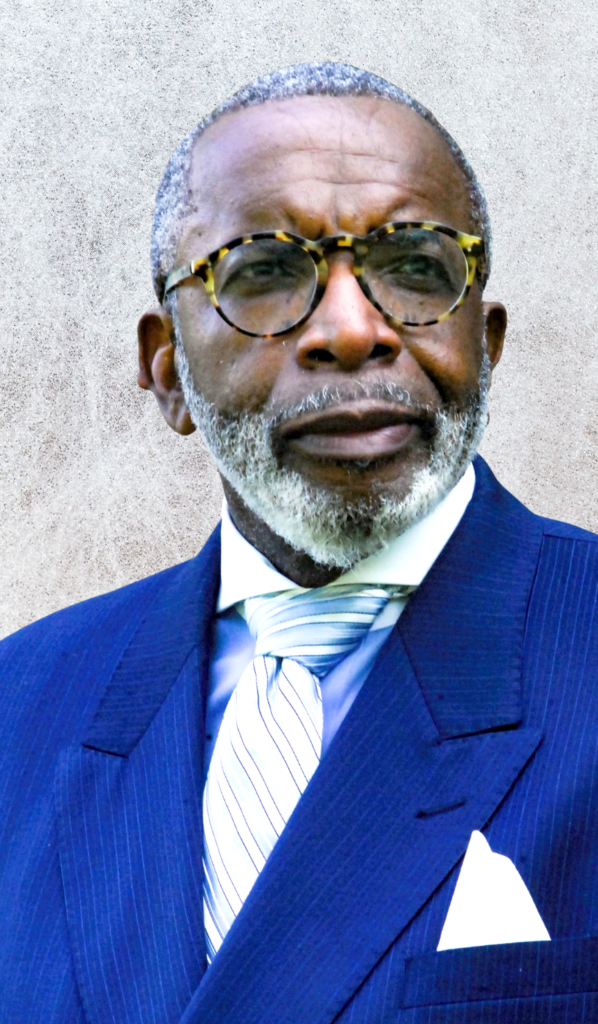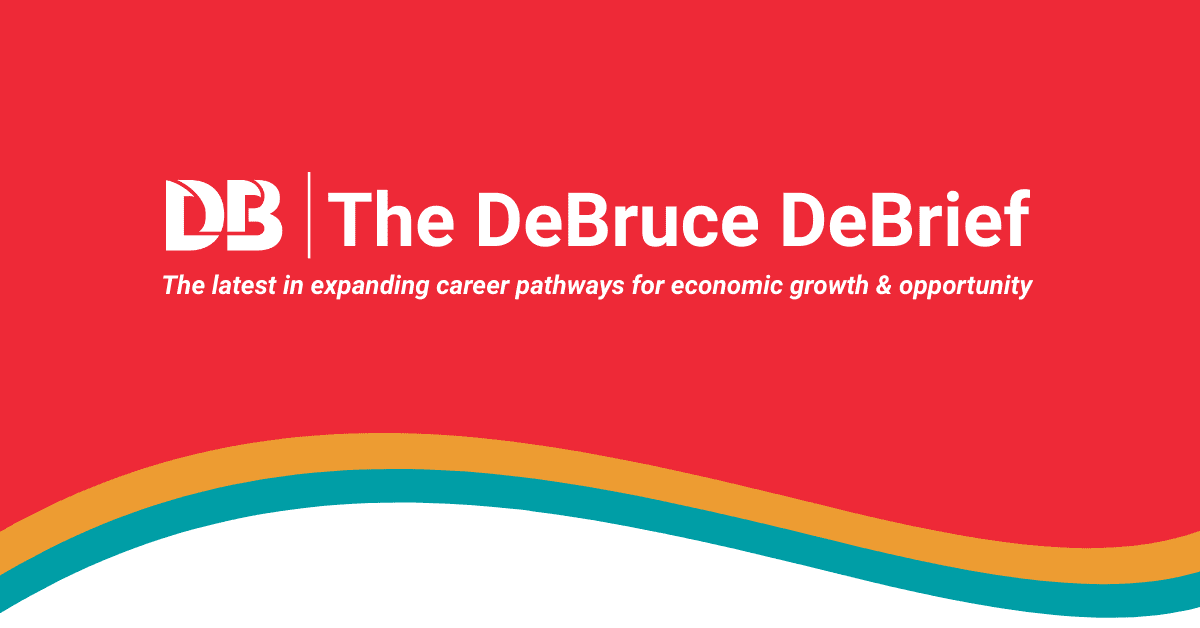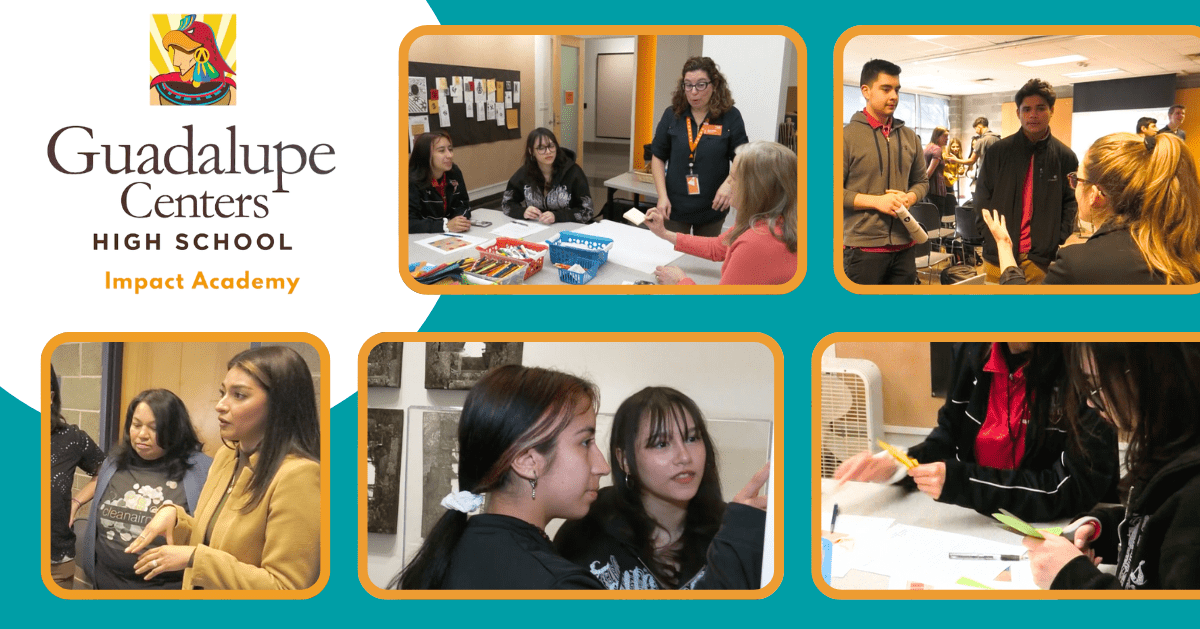Link copied to clipboard
By Dr. Charles A. West, Research Consultant for The DeBruce Foundation
Introduction
Mentors are those special individuals who care enough about you to share their wisdom and guide you along your personal and professional journey. The DeBruce Foundation’s research shows the two keys to career success are career literacy and network strength. Mentorship can help individuals develop both.
Growing up, I never heard the word “mentor.” Yet, the trajectory of my life reflects the limitless possibilities of mentoring. I am sharing my story to highlight the transformative role mentors played in my own high school, college, and professional life. After reading my story, consider what role you might play in this process for others.

High School
Mrs. Edna Coleman, my ninth grade English teacher, was my first mentor. One day she asked me to present my assignment and I was unprepared. I was disciplined in front of the whole class. Later, she took me aside and told me I had all of the qualities to be successful, but I had to be more disciplined and work harder to achieve my full potential. She coached and encouraged me to do my best. Years later, when I presented her with a copy of the fourth book I had authored, she was overwhelmed to see the impact that she had.
Wilbur “Bulldog” Gary, the football coach, was another of my mentors in high school. Coach Gary knew that I wanted to play football, but at 5’6” and 125 pounds, I was a little light in the pants. In 11th grade, Coach Gary recognized my strength in math and made me the team statistician. As we traveled all over Florida to play different schools’ teams, I had the second seat on the team bus next to Coach Gary. He taught me just like he taught his football players: discipline, hard work, academic excellence, and preparation = a winning game.
Charles J. Hawkins was my mentor through my early adult life. I met him in the tenth grade while helping my uncle rewire a rooming house. I was immediately impressed with Mr. Hawkins. He looked and acted like a successful businessman: well dressed, drove an Imperial, and seemed to be respected by everyone because they called him Mr. Hawkins. When I saw him overseeing renovations, he always asked how I was doing in school and my college plans. One day he invited me to lunch. I learned he had attended Morehouse College and how it helped shape him. He impressed on me the philosophy of Dr. Benjamin E. Mays, “low aim is sin.” At the end of the 11th grade, I was awarded scholarships to several colleges. I chose Morehouse and was awarded a Merrill Early Admission Scholarship. When I told Mr.Hawkins, he was ecstatic just like me. During my first year in college, Mr. Hawkins opened the first Black bank in Orlando and one of the first in the state of Florida. After visiting the bank frequently and meeting with Mr. Hawkins, I knew that I wanted to be like him. As a result, I graduated with a B.A. in Business Administration and later earned an M.B.A. and Ph.D.
College
Morehouse was renowned for its academic programs. None of it would have been possible without an engaged faculty. Not only did we see faculty in the classroom, but they invited students to their homes for discussions and meals. Most of us found mentors as a result of these informal gatherings. My college mentor became Dr. E.B. Williams.
Dr. Williams was chairman of the Dept. of Business and Economics. I took several of his courses and we always engaged in spirited discussions. Dr. Williams became my mentor and helped me navigate the Morehouse bureaucracy, as well as the social and career challenges. During my junior and senior years, I served as Dr. William’s assistant and interacted with him daily. He wanted me to earn a Ph.D. and follow him into the classroom, but I was committed to the business world. He also spent much of our time together talking about what he wanted to do once he retired. There was one book that he wanted to write, “Under the Shadow of the Plantation.” Dr. Williams retired, but his declining health prevented him from writing his book. In 1973, I returned to Morehouse and presented him an autographed copy of the first book I co-authored, a seminal work, “Black Enterprise Inc: Case Studies of a New Experiment.” Dr. Williams almost cried; he said that I had channeled his vision and energies into the book.
Career and Business
After working for E.I. Dupont and General Foods, I wanted to be a part of the action that was occurring in economic development across the country and chose Brooklyn. I left General Foods and joined the Robert F. Kennedy-founded Bedford Stuyvesant Restoration Corporation (BSRC). After six months on the job, I became manager of economic development. Dr. Alvin N. Puryear was Vice President of BSRC, and we worked closely together developing programs, tools, and procedures. I developed tremendous respect and admiration for him. Not only was he a former professional football player, but he had earned a B.A. from Yale and Ph.D. from Columbia University. One day after we had completed a report totaling hundreds of pages, I flippantly remarked, “We could write a book.”
He said, “You think so?” “Sure,” I said.
Then he said, “Draft an outline.”
In two days, I had an outline drafted. He and I visited several publishers from his network, including Doubleday and Random House. Doubleday liked the book concept because there were no case studies of Black Business or books on community development corporations (CDC) at the time. They gave us an advance of $4,000, and we completed the book in less than two years. Doubleday published the hardcover and Anchor press published the softcover. Al and I became mini-celebrities and toured the nation meeting with and working with CDCs all over the country.
Al left Restoration and became a college professor at Baruch College. Later, he recruited me to become a lecturer specializing in Black economic development. Teaching school gave me free time, and I began a gig working for a management consulting firm. I recruited Al to join me in the gig work. After working in economic development for several years, I took on other gig consulting experiences all over the world. Later, I left teaching to become an entrepreneur full-time where I ran a firm that bought, managed, and sold franchises. In between entrepreneurial ventures, I wrote four other books.
Mentoring Others
Early in the mentoring process, I recognized that even though I was a mentee to some, I was also a mentor to others who were junior to me and shared my knowledge and experience with them. These mentee and mentor relationships allowed me to become a part of my mentors’ network and build upon it. Similarly, my mentees were able to do the same thing. Over time, my mentees became mentors to complete the virtuous circle. I have sought to mentor others in building quality, positive relationships. From my own mentors, l learned that every mentee has an obligation to mentor others. Not only was I able to help others as a mentor, but as you have seen in the cases of Mrs. Coleman, Coach Gary, Mr. Hawkins, and Al Puryear, help my mentors as well.

